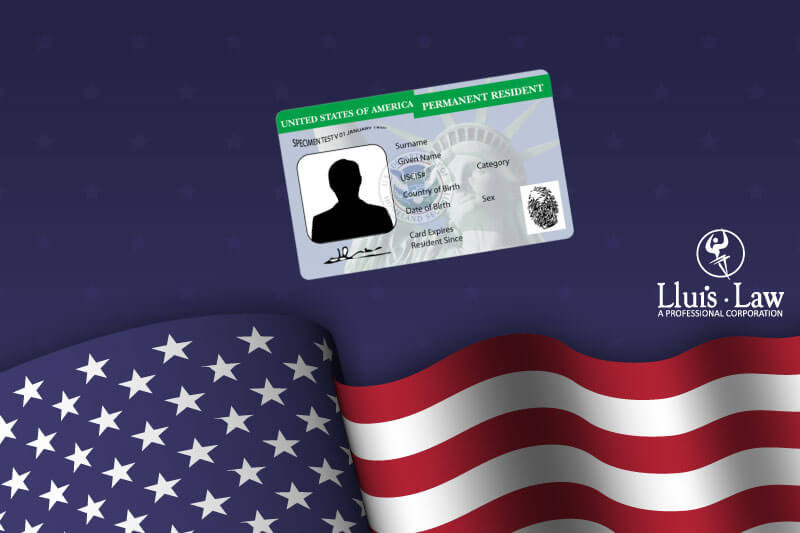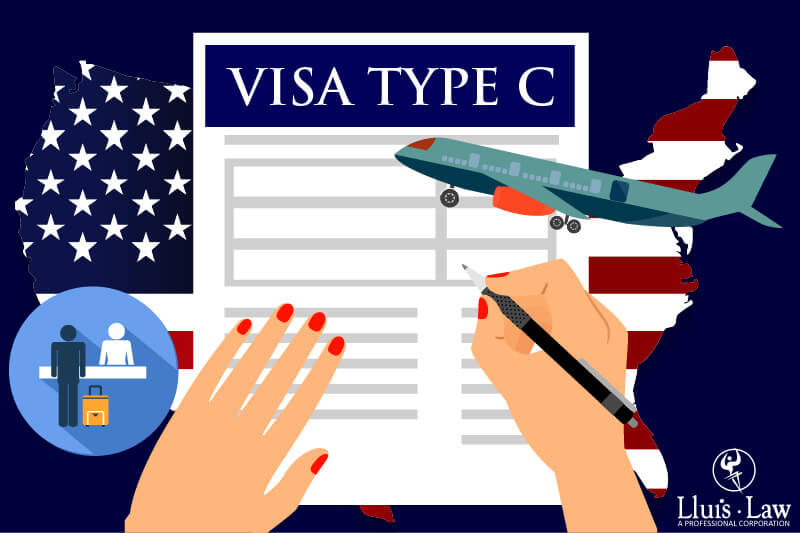Can I fly with a Mexican passport inside US? Yes, you can travel within the United States using a valid, unexpired Mexican passport. At gaymexico.net, we understand the unique travel considerations for the LGBTQ+ community, especially those with ties to Mexico. This guide provides essential information for safe and informed travel within the U.S. with your Mexican passport, ensuring a smooth and welcoming experience. Discover more about LGBTQ+ travel in Mexico, including LGBTQ+ travel tips, safe travel advice, and gay-friendly destinations, by exploring gaymexico.net today.
1. Flying Domestically Within the US with a Mexican Passport: What You Need to Know
Yes, you can fly domestically within the United States using a valid Mexican passport. The Transportation Security Administration (TSA) accepts foreign passports as a valid form of identification for air travel within the U.S.
Your Mexican passport serves as proof of your identity and nationality, which is generally sufficient for domestic flights. Keep in mind that while your immigration status isn’t the primary concern for TSA, having proper documentation can help avoid any potential issues. This is especially relevant for members of the LGBTQ+ community who may face additional scrutiny. Make sure your passport is valid and that the name on your airline ticket matches the name on your passport. For more detailed information on accepted forms of identification, visit the TSA website. Gaymexico.net also offers valuable insights into safe and welcoming travel experiences for the LGBTQ+ community in Mexico and the US.
2. TSA Requirements for Mexican Passports: Ensuring a Smooth Airport Experience
The TSA requires all passengers 18 years and older to present a valid form of identification at airport security checkpoints. A valid, unexpired Mexican passport is an acceptable form of identification.
When you present your Mexican passport, be prepared to remove it from its protective cover for inspection. The TSA officer will visually inspect the passport to verify its authenticity and validity. Although TSA’s primary focus is security, it’s always a good idea to be aware of your rights as a traveler. If you encounter any issues or have concerns during the screening process, you have the right to ask for a supervisor. Remember, a calm and respectful demeanor can go a long way in resolving any misunderstandings. Gaymexico.net can provide you with valuable travel tips and resources to ensure a safe and enjoyable journey, including information on LGBTQ+ friendly destinations in Mexico and the US.
3. REAL ID and Mexican Passports: What You Need to Know for Travel in 2025
Beginning May 7, 2025, every air traveler 18 years of age and older will need a REAL ID-compliant driver’s license, state-issued enhanced driver’s license, or another acceptable form of ID to fly within the United States. A Mexican passport remains an acceptable form of identification.
 Mexican Passport Accepted for US Domestic Flights
Mexican Passport Accepted for US Domestic Flights
The REAL ID Act establishes minimum security standards for state-issued driver’s licenses and identification cards. While a Mexican passport is not a REAL ID, it is still an acceptable alternative for domestic air travel. If you have a REAL ID-compliant driver’s license or state-issued enhanced driver’s license, you can use that instead of your passport. However, if you don’t have either of those, your valid Mexican passport will suffice. Stay informed about any updates to TSA regulations and REAL ID requirements by checking the TSA website or consulting with your immigration attorney. Gaymexico.net offers a wealth of information about LGBTQ+ travel in Mexico and the US, helping you navigate your journey with confidence.
4. Immigration Status vs. Identification: Understanding the Difference When Flying
While the TSA requires identification for security purposes, they are not primarily concerned with your immigration status. However, it’s important to understand the distinction between providing identification and your rights regarding immigration.
TSA officers are primarily focused on ensuring the safety and security of air travel. They are not immigration officers and generally do not inquire about your immigration status. However, if you are asked about your immigration status, you have the right to remain silent and not answer any questions. You also have the right to consult with an attorney before speaking with immigration officials. It’s crucial to know your rights and exercise them if you feel your rights are being violated. Gaymexico.net provides resources and information to help you understand your rights as an LGBTQ+ traveler, ensuring a safe and respectful travel experience.
5. Traveling with Expired Documents: Risks and Alternatives When Using a Mexican Passport
Traveling with an expired Mexican passport poses significant risks and is generally not recommended. While the TSA may accept certain expired documents under specific circumstances, an expired passport is typically not one of them.
An expired passport is not considered a valid form of identification, and you may be denied boarding if you present one at the airport. In some limited cases, TSA may accept an expired driver’s license or state-issued ID, but this is at their discretion and not guaranteed. To avoid any issues, make sure your Mexican passport is valid and unexpired before traveling. If your passport is expired, renew it as soon as possible. Contact the Mexican consulate or embassy in your area for assistance with passport renewal. Gaymexico.net can provide you with resources and links to relevant government agencies to help you navigate the passport renewal process.
6. Flying as a DACA Recipient with a Mexican Passport: What to Expect
If you are a DACA (Deferred Action for Childhood Arrivals) recipient with a valid Mexican passport and Employment Authorization Document (EAD), you can generally travel within the United States without issues.
DACA recipients are considered to have a lawful presence in the U.S. and are eligible to obtain state-issued driver’s licenses and identification cards. When flying, you can present your Mexican passport and EAD as proof of identity and lawful presence. While DACA provides protection from deportation, it’s important to stay informed about any changes in immigration policies or regulations. Carry copies of your DACA approval notice and EAD with you when traveling. If you have any concerns about your travel eligibility, consult with an immigration attorney. Gaymexico.net offers resources and support for the LGBTQ+ immigrant community, providing information and guidance on navigating the U.S. immigration system.
7. Traveling with a Green Card vs. a Mexican Passport: Understanding the Differences
If you are a lawful permanent resident (Green Card holder), you should always carry your Green Card with you when traveling within the United States. While you can use your Mexican passport, your Green Card is the primary document that proves your legal status.
 How to Get a Green Card
How to Get a Green Card
As a Green Card holder, you have the right to travel freely within the U.S. without any restrictions. Your Green Card serves as proof of your permanent resident status and allows you to re-enter the U.S. after traveling abroad. While your Mexican passport can be used for identification purposes, it’s not necessary for domestic travel as long as you have your Green Card. Keep your Green Card in a safe place and make sure it’s always readily available when traveling. If your Green Card is lost or stolen, report it to USCIS immediately and apply for a replacement. Gaymexico.net offers resources and information for LGBTQ+ immigrants, helping you understand your rights and responsibilities as a lawful permanent resident.
8. Flying with Children: Documentation Requirements for Minors with Mexican Passports
Minors (under 18) are not required to present identification when traveling domestically within the United States. However, it’s always a good idea to carry some form of identification for your child, such as a Mexican passport or birth certificate.
If you are traveling with a child who has a Mexican passport, you may be asked to provide proof of your relationship to the child. This can be a birth certificate, adoption decree, or other legal document. If you are traveling with a child who is not your own, you should have a notarized letter from the child’s parents or legal guardians authorizing you to travel with the child. This is especially important if you are traveling internationally. Keep in mind that airlines may have their own specific requirements for children traveling without a parent or legal guardian. Check with the airline before your flight to ensure you have all the necessary documentation. Gaymexico.net offers resources and information for LGBTQ+ families, providing guidance on legal issues and travel considerations.
9. What to Do if Your Mexican Passport is Lost or Stolen While Traveling
If your Mexican passport is lost or stolen while traveling within the United States, it’s important to take immediate action to protect yourself and obtain a replacement document.
Report the loss or theft to the local police department and obtain a police report. This will be helpful when applying for a replacement passport. Contact the Mexican consulate or embassy in the area where you are traveling. They can provide you with assistance in obtaining a replacement passport or other travel documents. Keep a copy of your passport and other important documents in a safe place, separate from your original documents. This will make it easier to apply for a replacement if your passport is lost or stolen. If you are unable to obtain a replacement passport in time for your return flight, you may be able to travel with an emergency travel document issued by the Mexican consulate. Contact the consulate for more information. Gaymexico.net offers resources and information for LGBTQ+ travelers, providing tips on staying safe and protecting your belongings while traveling.
10. Navigating Border Patrol Checkpoints: Rights and Responsibilities When Traveling Near the Border
If you are traveling near the U.S.-Mexico border, you may encounter Border Patrol checkpoints. It’s important to know your rights and responsibilities when interacting with Border Patrol agents.
Border Patrol agents have the authority to stop and question individuals within a certain distance of the border. They may ask you about your citizenship and immigration status. You have the right to remain silent and not answer any questions. You also have the right to refuse a search of your vehicle or belongings without a warrant. However, Border Patrol agents may conduct a search without a warrant if they have probable cause to believe that you have committed a crime. If you are stopped at a Border Patrol checkpoint, be polite and respectful. Provide your name and any requested documents, such as your Mexican passport. If you believe your rights have been violated, remain calm and make a note of the agent’s name and badge number. You can file a complaint with the Department of Homeland Security’s Office of Inspector General. Gaymexico.net offers resources and information for LGBTQ+ immigrants, providing guidance on navigating interactions with law enforcement and protecting your rights.
11. Traveling by Land with a Mexican Passport: What You Need to Know
Traveling by land within the United States with a Mexican passport is generally permissible, but it’s essential to be aware of specific requirements and potential challenges.
For travel within the U.S., a valid, unexpired Mexican passport serves as a sufficient form of identification. However, when crossing state lines, especially in states bordering Mexico, you might encounter immigration checkpoints. At these checkpoints, you may be asked to provide documentation proving your legal status in the U.S. While a Mexican passport confirms your identity and nationality, it doesn’t necessarily verify your legal status. If you’re not a U.S. citizen or lawful permanent resident, carrying additional documents such as a visa, I-94 form, or employment authorization document is advisable. These documents can help demonstrate your authorized stay in the country. It’s also crucial to remember your rights. You have the right to remain silent and the right to an attorney if questioned by immigration officials. Knowing your rights and having the necessary documents can help ensure a smooth and stress-free travel experience. Gaymexico.net offers resources that provide guidance on legal rights and travel tips for LGBTQ+ individuals, helping you navigate potential challenges with confidence.
12. What Happens if You’re Detained?
If you are detained while traveling within the U.S. with a Mexican passport, it is crucial to understand your rights and take appropriate steps to protect yourself.
 Immigrants Travelling the USA Without Papers
Immigrants Travelling the USA Without Papers
First and foremost, remember that you have the right to remain silent. You are not obligated to answer any questions from law enforcement or immigration officials without an attorney present. Politely but firmly state that you wish to exercise your right to remain silent and request to speak with an attorney. Do not provide any information about your immigration status or travel history without consulting with legal counsel. Next, make sure to contact an attorney as soon as possible. An experienced immigration attorney can advise you on your rights and represent you in any legal proceedings. They can also help you communicate with law enforcement and ensure that your rights are protected. Additionally, it is essential to inform your family or a trusted friend about your detention. Provide them with the contact information of your attorney and ask them to keep a record of all communications with law enforcement. Knowing your rights and acting promptly can make a significant difference in the outcome of your case. Gaymexico.net offers a directory of LGBTQ+-friendly attorneys and legal resources to assist you in such situations.
13. Overstaying a Visa and its Impact on Future Travel
Overstaying a visa in the United States can have severe consequences, affecting your ability to travel within the country and your chances of returning in the future.
When you enter the U.S. on a visa, you are granted permission to stay for a specific period. Remaining in the country beyond this authorized period is considered a violation of immigration law. Overstaying a visa can lead to several adverse outcomes. Firstly, your visa will be automatically revoked, and you may be subject to deportation. Secondly, you may be barred from re-entering the U.S. for a certain period, depending on the length of your overstay. If you overstay for more than 180 days but less than a year, you may be barred from re-entering for three years. If you overstay for more than a year, you may be barred from re-entering for ten years. Additionally, overstaying a visa can make it more difficult to obtain future visas or adjust your status to become a lawful permanent resident. Immigration officials will view you as a risk and may deny your applications. If you realize that you have overstayed your visa, it is essential to seek legal advice from an experienced immigration attorney. They can assess your situation and help you explore your options, such as applying for an extension of stay or seeking a waiver of inadmissibility. Addressing the issue promptly and honestly can improve your chances of resolving the situation favorably. Gaymexico.net provides resources and information to help you understand visa regulations and avoid overstaying, ensuring your future travel plans are not jeopardized.
14. Resources for LGBTQ+ Travelers in Mexico and the United States
Traveling as an LGBTQ+ individual can present unique challenges, but numerous resources are available to ensure a safe and enjoyable experience.
In Mexico, several organizations and online platforms offer support and information for LGBTQ+ travelers. Gaymexico.net is a comprehensive resource that provides travel guides, safety tips, and information on LGBTQ+-friendly destinations, events, and accommodations throughout Mexico. Additionally, organizations like the International Gay and Lesbian Travel Association (IGLTA) offer a directory of LGBTQ+-welcoming businesses and destinations worldwide. In the United States, numerous LGBTQ+ community centers and advocacy groups provide resources and support for travelers. The Human Rights Campaign (HRC) offers guides on LGBTQ+ rights and protections in each state, while organizations like the National LGBTQ Task Force advocate for equality and inclusion. When planning your trip, consider staying at LGBTQ+-friendly hotels and resorts, and supporting businesses that actively promote inclusivity. You can also connect with local LGBTQ+ communities through social media groups and online forums to get insider tips and recommendations. Remember to stay informed about local laws and customs, and be aware of your surroundings. With careful planning and access to the right resources, you can have a safe, memorable, and affirming travel experience. Gaymexico.net serves as a valuable hub for LGBTQ+ travelers, offering a wealth of information and community support to help you navigate your journey with confidence.
15. The Importance of Knowing Your Rights as an Immigrant in the US
As an immigrant in the United States, understanding your rights is crucial to protect yourself from discrimination, ensure fair treatment, and navigate the complexities of the legal system.
The U.S. Constitution and various federal and state laws guarantee certain rights to all individuals, regardless of their immigration status. These rights include the right to remain silent, the right to an attorney, the right to be free from unreasonable searches and seizures, and the right to equal protection under the law. Knowing these rights can empower you to assert yourself in interactions with law enforcement, immigration officials, and other authorities. If you are stopped by law enforcement, you have the right to remain silent and refuse to answer questions without an attorney present. You also have the right to refuse a search of your person, vehicle, or home without a warrant. If you are detained by immigration officials, you have the right to an attorney and the right to a hearing before an immigration judge. It is essential to exercise these rights if you believe they are being violated. Additionally, you should be aware of your rights in the workplace, including the right to be free from discrimination based on your race, ethnicity, or national origin. Employers cannot discriminate against you based on your immigration status, and you have the right to file a complaint with the Equal Employment Opportunity Commission (EEOC) if you believe you have been discriminated against. Numerous organizations and legal aid providers offer free or low-cost legal services to immigrants in the U.S. These resources can help you understand your rights, navigate the legal system, and advocate for yourself in various situations. Gaymexico.net provides a directory of LGBTQ+-friendly legal resources to help you access the support you need.
16. Can Police Ask Me About My Immigration Status?
Yes, police officers can ask about your immigration status, but you have the right to remain silent.
You are not required to answer questions about your immigration status. If an officer asks, you can politely state that you prefer not to answer. It is essential to remember that you should never lie or provide false documents about your immigration status, as this can have serious legal consequences. If you are unsure how to respond, you can politely say, “I would like to exercise my right to remain silent and speak with an attorney.” This invokes your Fifth Amendment right, protecting you from self-incrimination. If the police officer persists or becomes aggressive, remain calm and do not resist. Make a mental note of the officer’s name, badge number, and patrol car number, and write down everything that happened as soon as possible. If you believe your rights have been violated, contact an attorney or a civil rights organization. Gaymexico.net can provide resources and referrals to legal services that can help you understand your rights and protect yourself.
17. Arriving Early At The Airport
Arriving early at the airport is crucial, especially for international travelers, to allow ample time for security checks and potential immigration screenings.
 US Transit Visa
US Transit Visa
International travelers often face additional layers of scrutiny at airport security checkpoints. Arriving early provides a buffer in case of longer-than-expected lines at security or customs. It also allows you to address any unexpected issues or concerns that may arise without feeling rushed. When you arrive early, you are more likely to remain calm and composed, which can contribute to a smoother overall experience. Rushing through security can increase stress and anxiety, potentially leading to mistakes or misunderstandings. Arriving with plenty of time allows you to review your travel documents, ensure you have everything you need, and approach the screening process with confidence. Additionally, arriving early provides an opportunity to familiarize yourself with the airport layout, locate your gate, and take care of any last-minute tasks, such as exchanging currency or purchasing snacks. This can help you feel more prepared and in control of your travel experience.
18. Bring The Correct Documentation
Bringing the correct documentation is essential for a smooth and stress-free travel experience.
Ensuring you have all the necessary documents readily available can prevent delays and potential complications at the airport or border crossing. For international travel, this typically includes a valid passport, visa (if required), and any other documents required by the destination country, such as proof of vaccination or a negative COVID-19 test. For domestic travel, a valid form of identification, such as a driver’s license or passport, is usually sufficient. It is also a good idea to carry copies of your important documents in case the originals are lost or stolen. Store the copies separately from the originals to minimize the risk of losing everything at once. Before your trip, double-check the requirements for your destination and make sure you have all the necessary documents in order. It is also a good idea to inform your bank and credit card companies of your travel plans to avoid any issues with your cards being blocked for suspected fraud. Additionally, consider purchasing travel insurance to protect yourself against unforeseen circumstances, such as trip cancellations, medical emergencies, or lost luggage. With careful planning and preparation, you can minimize the risk of travel-related stress and enjoy a more relaxing and rewarding journey.
19. Know Your Rights
Knowing your rights is essential to protect yourself from mistreatment or discrimination, whether at the airport, border crossing, or in everyday life.
In the United States, everyone is entitled to certain fundamental rights, regardless of their immigration status. These rights include the right to remain silent, the right to an attorney, and the right to be free from unreasonable searches and seizures. If you are stopped by law enforcement, you have the right to refuse to answer questions without an attorney present. You also have the right to refuse a search of your person, vehicle, or home without a warrant. If you believe your rights have been violated, it is important to remain calm and polite, but assert your rights firmly. Make a mental note of the officer’s name, badge number, and patrol car number, and write down everything that happened as soon as possible. If you are unsure about your rights in a particular situation, seek legal advice from an attorney or a civil rights organization. There are numerous organizations that provide free or low-cost legal services to immigrants and other vulnerable populations. You can also find information about your rights online or at your local library. Knowing your rights and being prepared to assert them can help you protect yourself from mistreatment or discrimination.
FAQ: Flying with a Mexican Passport Inside US
Here are some frequently asked questions about flying with a Mexican passport inside the US:
- Can I use my Mexican passport to fly domestically within the US? Yes, a valid, unexpired Mexican passport is accepted by the TSA as a form of identification for domestic flights.
- Does the TSA check my immigration status when I fly with my Mexican passport? The TSA’s primary focus is security, not immigration status. However, it’s important to carry documentation that proves your legal status in the US if you are not a citizen or lawful permanent resident.
- What if my Mexican passport is expired? An expired passport is generally not accepted as a valid form of identification. Renew your passport before traveling.
- I am a DACA recipient. Can I fly with my Mexican passport? Yes, DACA recipients can fly with their Mexican passport and Employment Authorization Document (EAD).
- Can Border Patrol ask about my immigration status at an airport? Yes, but you have the right to remain silent and request an attorney.
- What should I do if my Mexican passport is lost or stolen while traveling? Report the loss or theft to the local police and contact the Mexican consulate for assistance.
- Do children need a passport to fly domestically? Minors are not required to present identification when traveling domestically.
- Can police ask me about my immigration status? Yes, but you have the right to remain silent.
- What happens if I overstay my visa in the US? Overstaying a visa can have serious consequences, including being barred from re-entering the US.
- Where can I find resources for LGBTQ+ travelers in Mexico and the US? Gaymexico.net and other LGBTQ+ organizations offer resources and support for travelers.
At gaymexico.net, we are dedicated to providing the LGBTQ+ community with comprehensive and up-to-date information about traveling in Mexico and the United States. From LGBTQ+ travel tips to safe travel advice and gay-friendly destinations, we’ve got you covered.
Are you ready to explore the vibrant and welcoming destinations Mexico has to offer? Visit gaymexico.net today to discover our detailed travel guides, find LGBTQ+-friendly accommodations, and connect with the local community. Whether you’re planning a relaxing beach vacation in Puerto Vallarta or an exciting cultural adventure in Mexico City, gaymexico.net is your go-to resource for all things LGBTQ+ travel in Mexico. Don’t wait – start planning your dream trip today and experience the beauty and diversity of Mexico with confidence and pride. Address: 3255 Wilshire Blvd, Los Angeles, CA 90010, United States. Phone: +1 (213) 380-2177. Website: gaymexico.net.
